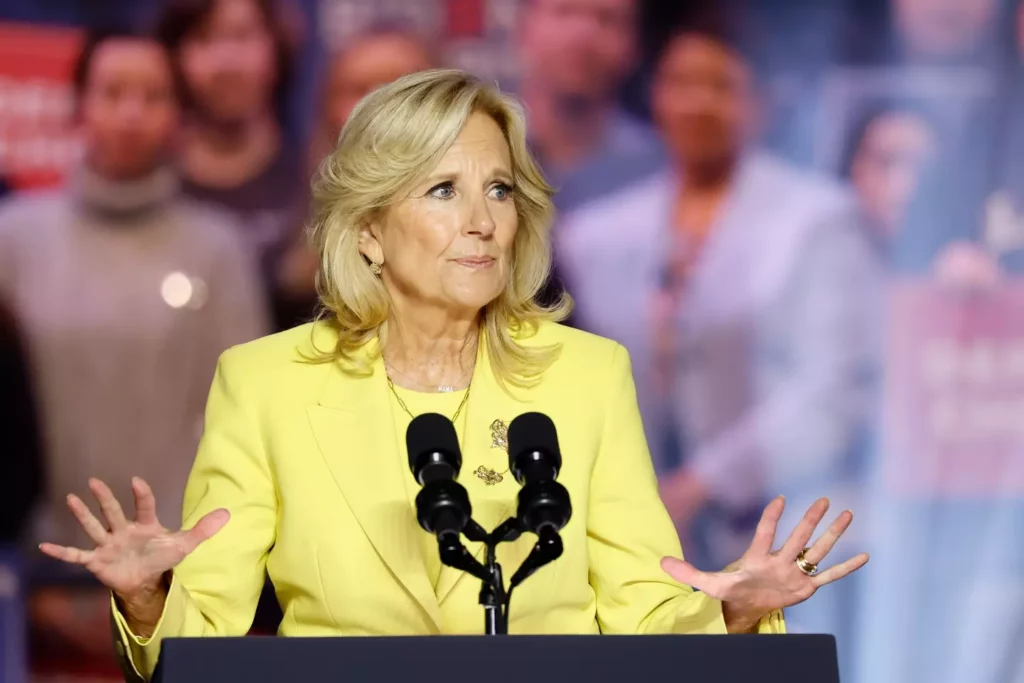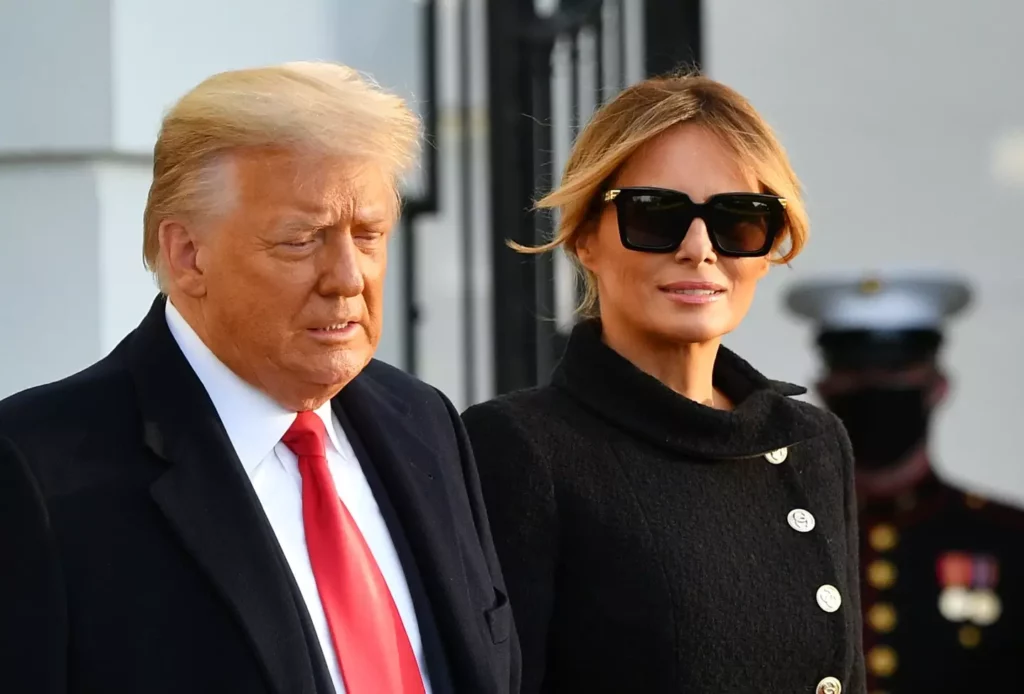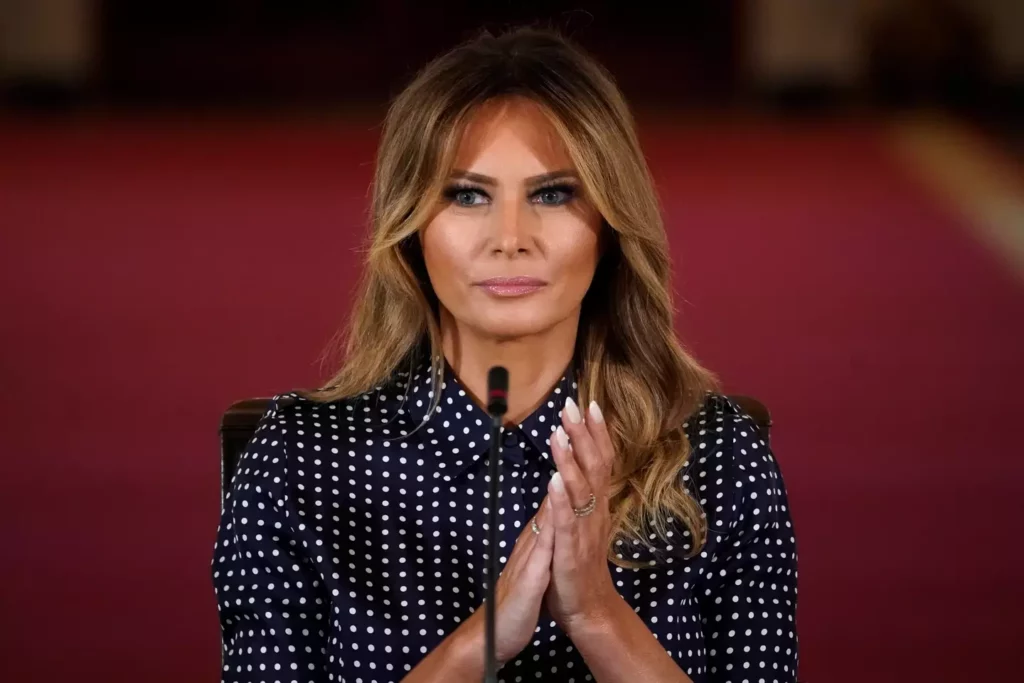Jill Biden Reveals Efforts to Uphold First Lady Traditions Amid Melania Trump’s Alleged Decline of White House Tea Invitation
Following Donald Trump’s victory in the November presidential election, First Lady Jill Biden extended an invitation to Melania Trump for a customary White House tradition—an invitation that, according to reports, was declined. The tradition, involving the outgoing and incoming First Ladies sharing tea during the presidential transition, has long symbolized civility and cooperation in the nation’s highest office. However, Jill Biden revealed in a recent interview with The Washington Post that this practice was not observed during this transition.
A Break from Tradition
In the interview, Jill Biden acknowledged that Melania Trump broke with precedent by declining the invitation. “I congratulated her and offered help,” Biden said, adding, “What would be the point of nastiness?” Her comments reflect her approach to maintaining decorum and civility despite the political divides that often dominate Washington.
When the tea meeting did not materialize, Jill Biden took an additional step by sending Melania a personal note. According to Jill, the note was delivered through President Joe Biden when he met Donald Trump at the reopening of Notre Dame in December 2024. The note, though not publicly disclosed, reportedly emphasized goodwill and a willingness to assist with the transition.

An Acknowledgment at Jimmy Carter’s State Funeral
The two First Ladies eventually crossed paths at former President Jimmy Carter’s state funeral on January 9, 2025. During the event, Jill Biden confirmed that Melania thanked her in passing, noting the exchange was limited to polite pleasantries. The meeting was a rare moment of direct interaction between the two, given the absence of a formal meeting during the transition period.
Melania Trump’s Perspective on the Transition
In December 2024, Melania Trump appeared on Fox & Friends and offered her perspective on the transition process. She noted that the Trump administration’s first transition to the White House in 2016 was challenging due to a perceived lack of cooperation from the outgoing administration.
“The first time was challenging; we didn’t have much of the information,” she said during the interview. “The information was withheld from us by the previous administration. But this time, I have everything… it’s a very different transition this time, second time around.”
Her comments suggested confidence in a smoother process as she prepared to assume the role of First Lady for the second time. However, they also appeared to underscore lingering frustrations from the previous transition period.
Discussion of Public Image and Magazine Covers
During her Fox & Friends appearance, Melania Trump was asked by host Brian Kilmeade about her potential return to the spotlight, specifically whether she would consider posing for magazine covers during her tenure as First Lady. The question came after Jill Biden graced the cover of Vogue in August 2021, a moment celebrated by many but also criticized by some as politically motivated.
Melania, a former model who has appeared on the covers of prominent magazines, responded with measured remarks. “Look, I’ve been there on the covers—on the cover of Vogue, on the covers of many magazines before. We have so many other important things to do than to be on the cover of any magazine,” she said.
She added, “I think that life would not change for anybody if I’m on the cover,” seemingly downplaying the importance of such appearances. Some interpreted this as a subtle jab at Jill Biden’s Vogue cover, though Melania refrained from making any direct criticisms.

Symbolism and Public Perception
The contrasting approaches of Jill Biden and Melania Trump highlight the evolving nature of the First Lady’s role in American politics. While Jill Biden has embraced a more traditional, visible role, Melania Trump has often taken a quieter, more understated approach, focusing on her personal projects and maintaining a level of privacy.
The absence of a formal tea meeting during the transition, however, marks a significant departure from a time-honored tradition that has symbolized cooperation and mutual respect between outgoing and incoming First Ladies. The decision to forgo this gesture, whether intentional or circumstantial, has added another layer of complexity to the public’s perception of the relationship between Jill Biden and Melania Trump.

Conclusion
As First Lady, Jill Biden’s efforts to uphold traditions and extend gestures of goodwill illustrate her commitment to civility, even when faced with political and personal differences. Melania Trump, on the other hand, appears to prioritize a different approach, focusing on her own priorities and opting out of certain ceremonial expectations.
The events surrounding the transition underscore the ongoing tension and differing philosophies within the political sphere, where even traditions like a simple tea meeting carry symbolic weight. Whether this moment will influence future First Lady transitions remains to be seen, but it serves as a reminder of the evolving dynamics within the White House and the role of First Lady in bridging political divides.


